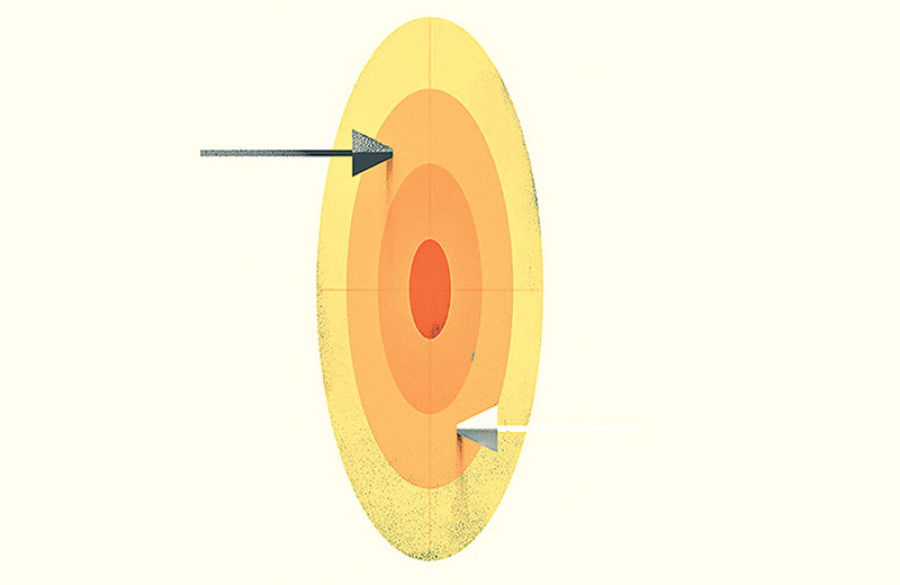Opinion
What lies ahead
The way the impeachment row unfolded can only adversely impact the judiciary in the years to come
Barun Ghimire
Local elections have diverted national discourse towards election-related issues. We focused on the elections for the last couple of weeks and now are concentrating on the result and its analysis. It is also apparent that election-related issues will continue taking center stage as we head towards the second stage of the local polls. Amid the “election atmosphere”, the impeachment motion against Chief Justice (CJ)
Sushila Karki and related developments have ceased to elicit much debate and discussion.
I would like to bring forth some of the issues related to the impeachment row that have been glossed over. The first concern is why the CJ isn’t presiding at the bench any longer. Respecting the decision of the Supreme Court, the CJ is back in office. However, the CJ’s role has been limited as she is not on the bench hearing and deciding cases.
Setting precedents
A significant portion of the legal fraternity was baffled by the impeachment motion. There were two main reasons: First, the motion was seen as a blatant attack on the independence of the judiciary. Second, the motion came against a CJ who was known to be bold, honest and fair. These two factors led many—including legal professionals, academics, civil society leaders, journalists and the general public—to stand against the motion.
The Supreme Court’s decision to reinstate the CJ, though debatable, was generally welcomed. But why hasn’t the CJ, upon reinstatement, shown the same zeal and grit that she was known for? Is it a strategic move that pacifies the tussle between the executive and the judiciary or a form of compromise at the cost of the judiciary’s independence?
Irrespective of why the CJ is no longer on the bench hearing cases, those who had high expectations from her should be disappointed. Further, those who believe in the independence of the judiciary should be alarmed at the ensuing development. The way the impeachment row has unfolded can only adversely impact the judiciary in the years to come. The tussle between the executive and the judiciary needs proper closure which can set a precedent for the future.
The second concern that is missing in the discourse is about the political influence over the judiciary, particularly in the appointment of judges. One thing that became evident from the discussion following the impeachment row was that there is significant political influence in the appointment of judges. The motion in this context can be seen as an ‘effect’ of such political influence. We need to further discuss it to determine ways to keep the judiciary free of political influence.
Adequately prepared
The third concern is about the procedural clarity in the impeachment process itself. The constitutional provision in Article 101 (3) provides that, “There shall be an impeachment recommendation committee in the House of Representatives for the purpose of making recommendation after inquiring into whether there exist the ground and reason for moving a motion of impeachment against any person.” During the impeachment motion against the CJ, the question was raised: when is the official against whom the impeachment motion is tabled suspended from office? Is it upon the recommendation of the committee pursuing the impeachment motion? Or is it immediately upon the registration of the impeachment motion? The issue of procedural clarity on impeachment and resulting suspension of those under scrutiny must be made clear.
The fourth concern is the public scrutiny of the impeachment motion. As impeachment is the rarest provision to hold the highest office bearers accountable, isn’t an open discussion on the motion desirable? Isn’t a public debate a pre-requisite for a matter as grave as impeachment? The provision of impeachment is indeed necessary to bring the state’s highest office holders under scrutiny, but this doesn’t mean it can be used lightly to seek political gain or exact personal vengeance. There must be public knowledge and scrutiny of a potential case of impeachment, and those leading the motion and supporting it should also be held accountable, at least morally.
The fifth issue associated with the impeachment motion is the need for deliberation on the surrounding issues. Our academia needs to analyse all relevant factors, including legal provisions, procedures, accountability concerns, and so on, so as to gain deeper insight into what changes are necessary to ensure the balance of power between the executive and the judiciary and how the latter’s independence can be best protected. The academia needs to study this event as a case study and draw conclusions based on the merit of the case.
In sum, the vulnerability of the balance of power between the executive and the judiciary exposed by the impeachment motion against the CJ needs proper closure. It needs robust analysis, as this isn’t where the issue ends, but where it starts. The impeachment motion and the ensuing developments must be taken as a lesson, and we need good preparations to avoid it in the future. The impeachment provision must stay, but we need procedural clarity and public scrutiny to ensure that impeachment isn’t invoked in a way that undermines its sanctity. Without these, what lies ahead can be more damaging than what we faced in the CJ impeachment row recently.
Ghimire is an advocate and teaches human rights law




 9.7°C Kathmandu
9.7°C Kathmandu










